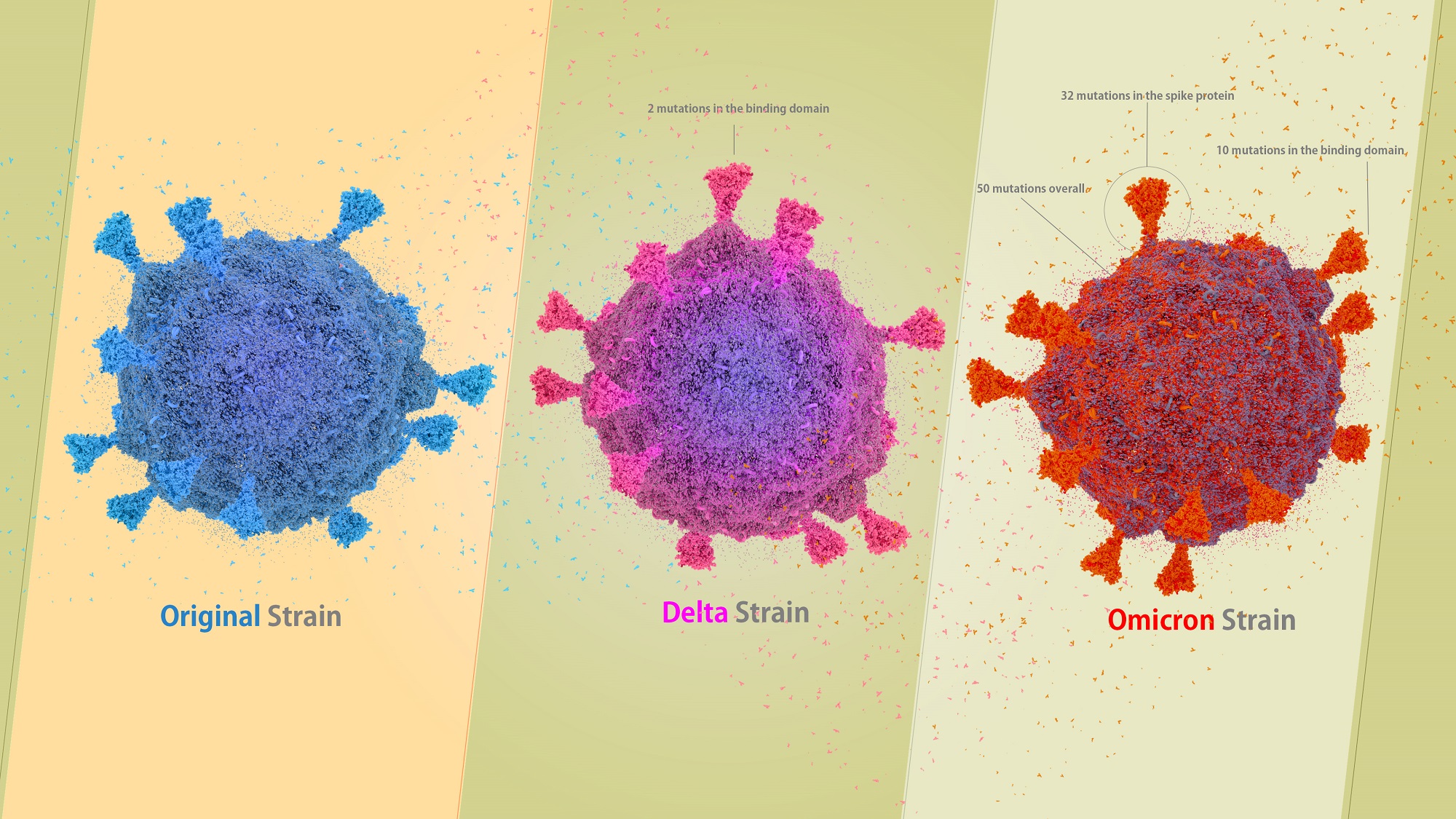What We Know and Don’t Know About Omicron

As many of us emerged from a long Thanksgiving weekend and returned to the office, there was one word to be heard at the water cooler – Omicron.
On Sunday, November 28, the World Health Organization (WHO) designated the new SARS-CoV-2 variant a “variant of concern” (VOC) with the U.S. SARS-CoV-2 Interagency Group (SIG) following suit on November 30. As of December 2, the CDC has confirmed nine cases of Omicron in the U.S.
This new COVID-19 variant sounds like a Sci-fi movie from the sixties. But rather than running to the hills screaming, we should all remain calm and look at knowns and unknowns.
“Most importantly, we already know what we need to do to stay safe,” says Roy E. Weiss, M.D, PhD., Chief Medical Officer for COVID-19 at the University of Miami. “They’re the very same measures we’re doing now – masking, avoiding crowds, washing hands, and vaccination.”
What we know about Omicron
The variant was first detected in early November in South Africa and reported to the WHO on November 24. The organization names variants according to letters in the Greek alphabet. It named this new variant Omicron instead of the subsequent two letters – Nu and Xi – to avoid confusion
since Nu is similar to “new,” and Xi is a common surname.According to the CDC, among the reasons for designating it a VOC so quickly include the “detection of cases attributed to Omicron in multiple countries, including among those without travel history” and “transmission and replacement of the Delta variant in South Africa.”
The agency also noted the number and locations of substitutions in the spike protein. Omicron has about 50 mutations (twice as many as Delta) with 30 on the spike protein, which can directly affect how well it binds to human cells (transmissibility) and alter how the virus interacts with the antibodies produced by the vaccines or prior infection (evading immune response).
Omicron also has 21 unique mutations that have not been seen in other variants. “It is hard to predict exactly what the virus will do for these reasons, but the risk level is high enough to warrant taking it very seriously,” says Dr. Weiss.
However, this is a very new development, and it will take weeks to work through the data.
Dr. Weiss says that although there is a lot of speculation in the media and among the scientific community, there are vital questions about Omicron we don’t have answers to yet.
- How quickly does it spread?
- How sick will it make people?
- How effective are the vaccines at preventing severe illness and deaths?
- Can people who have been vaccinated or have previously had COVID get infected?
- Is it evading PCR or rapid tests?
Stay calm and keep that mask on
Omicron is no reason to panic or give up. It also doesn’t have to be the Ghost of Christmas Past come to ruin the holidays. We already know what works, says Dr. Weiss.
- Wear facial coverings when indoors
- Avoid crowds
- Practice good hand hygiene
- Ventilate indoor spaces by opening a window and/or using an air filter
- Get tested if you have symptoms
- Isolate if you’re positive for COVID-19
- Get vaccinated
- Get boosted six months after your last vaccination
“Staying committed to these protective measures and convincing your friends and family to do the same is the best way to stay safe,” says Dr. Weiss. “It’s also the fastest route to ending this pandemic.”
Written by Natasha Bright, contributing writer for UMiami Health News.
Tags: covid variants, COVID-19, covid-19 in Miami, Dr. Roy Weiss, omicron
